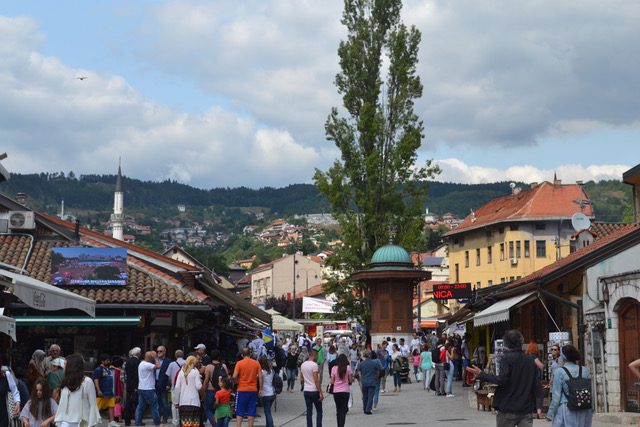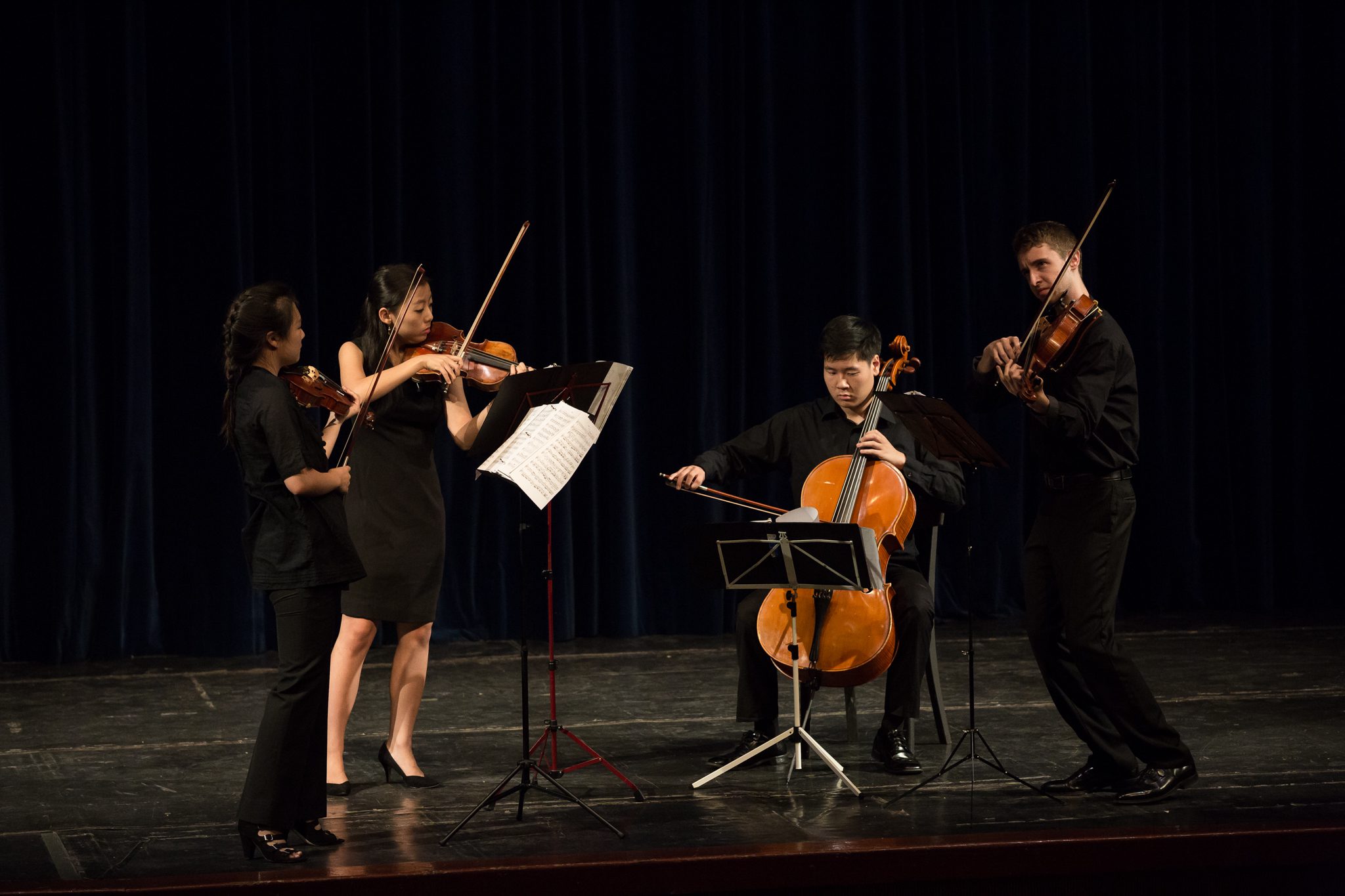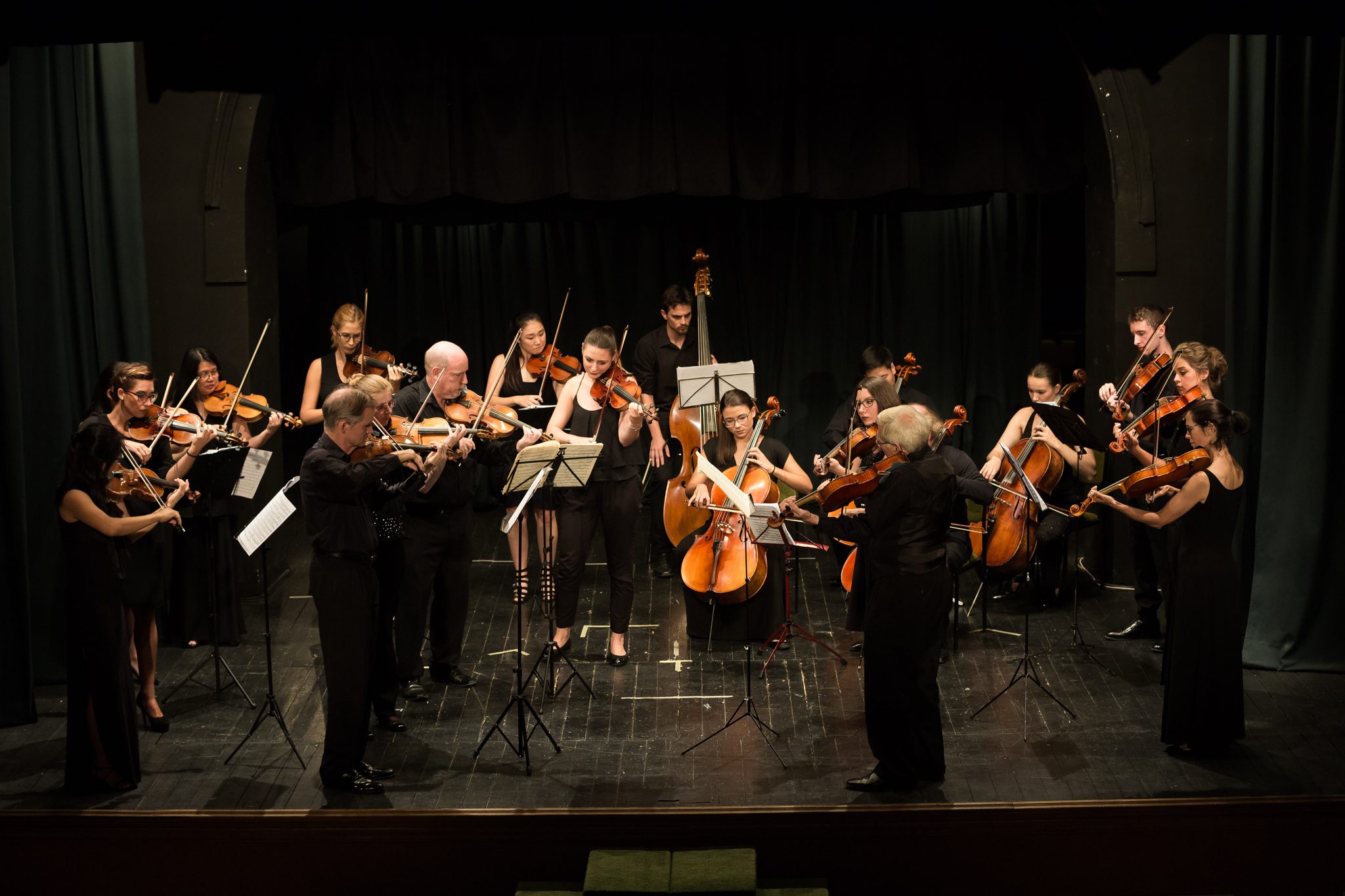This summer a David A. Gardner ’69 Magic Project Grant enabled an undergraduate string quartet to participate in the Sarajevo Chamber Music Festival: workshops, master classes, and concerts in Sarajevo and nearby cities. The project was led by Anna Lim (Music), whose aim was to showcase the conservatory caliber of Princeton’s undergraduate musicians and for them to experience the challenges and rewards of performing at a professional level.
Many Princeton music students are superlative performers, and in recent years increasing numbers have entered the world of performing arts. Lim, who had coached Beethoven quartets in the spring chamber music course Music 213, noted: “These pieces represent the pinnacle of the chamber music repertoire and require significant commitment.
The students learned their individual parts over the summer, we prepared for a few days in Princeton, and by the time we left for Sarajevo the piece was in pretty good shape. But after our immersion in the beautiful city of Sarajevo, with its minarets and mountains, the students began to delve into Beethoven in a much deeper and more expressive way. The resulting performances were unbelievably spontaneous and gorgeous.”
The outstanding instrumentalists (violinists Haeun Jung ’20 and Hyunnew Choi ’19, violist Sam Matzner ’17, and cellist David Kim ’20), performed Beethoven’s string quartet, opus 18, number 3, and joined with peers from other countries to perform Beethoven’s “Grosse Fuge,” opus 133, one of his monumental achievements. The rehearsals took place in Sarajevo and the concerts were in Sarajevo as well as in the nearby cities of Mostar and Zenica.
Caryl Emerson, Princeton’s professor emerita of Slavic Languages and Literatures, attended two of the concerts. “It was breathtaking. First, the level of excellence and professional poise. And then: the Balkans and Beethoven are a splendid, invigorating mix, far from the noise of 20th-century cities and sunk in the ancient architecture of several world cultures—Muslim, Jewish, Eastern Orthodox Christian. There were traces of the civil war that ravaged the region in the 1990s, of course. But that made the coming-together over very great music all the more necessary and exciting.”

Sarajevo Old Town
The Princeton students were exposed to a part of the world that they had not previously seen, and they participated in a project of bridge-building between people of different ethnic and religious communities. The cities they visited had all suffered during the Balkan wars of the 1990s, which resulted in the splintering of Yugoslavia. Sarajevo was traditionally a melting pot of religions and cultures, all of which have left their mark on the city today.
The students’ hotel was a few hundred steps from where Archduke Ferdinand was assassinated, the catalyst of the First World War. Every step of the old city evokes earlier periods in its history, whether Ottoman, Austro-Hungarian, or socialist. Sarajevo is still recovering from the chaos of the 1990s, and the Princeton students were able to contribute to its cultural renewal.
“Performing in Bosnia was such an incredible experience; especially upon internalizing the tragic history of the area, it was really empowering to have the opportunity to bring music as beautiful as that of Beethoven to the local residents, many of whom don’t get regular access to classical music. Despite the inevitable cultural barriers, I felt as if music served as a common language, one that had the power to uplift and inspire audiences,” said Hyunnew Choi ’19, Economics major and violinist.

Violinists Haeun Jung ’20, Hyunnew Choi ’19, cellist David Kim ’20 and violist Samuel Matzner ’17 in concert playing Beethoven’s String Quartet opus 18 number 3
Haeun Jung ’20, mused, “Perhaps I will go back as a musician, or maybe as a medical student. I still have no idea what I want to pursue in the future but music is definitely something I want to keep in my life, whether as a lifelong thing, or simply as a hobby. Although this question probably won’t be answered for a really long time, Sarajevo Chamber Music Festival gave me an opportunity to ask myself that question in a different perspective.”
The Sarajevo Chamber Music Festival was created in 2010 by American cellist Chris Finckel and faculty members of the Sarajevo Academy of Music. Its purpose is to revive the rich musical heritage of Sarajevo after the devastation caused by the civil war two decades ago, when Sarajevo was blockaded and under siege for almost four years.
Cellist David Kim ’20 noted,“It was genuinely stunning to me that various passersby and vendors would stop to greet Chris Finkel, the charismatic and talented man who played such a large role in reviving the classical music scene.” Most of the festival participants are students at the Sarajevo Academy and other music schools in former Yugoslavia.
The application deadline for 2018-2019 Magic Grants is November 8.
By Min Pullan
















